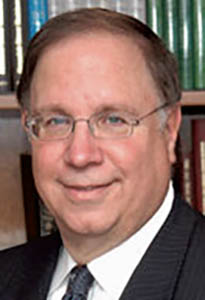
In response to the continued acts of terror in Europe and the U.S., the English weekly news magazine Economist recently opined that “it seems likely that much of Europe and America will have to get used to acts of Islamist-inspired terrorism becoming, if not routine, at least fairly regular occurrences.” Israel is cited as an example of where terrorism has become a part of daily life.
In this “age of humdrum terror,” the paper warned of the risk of overreacting to these acts of terrorism, since as President Obama observed, the likelihood of drowning in a bathtub is far greater than being murdered by terrorists. Though statistically the danger of being killed or maimed by a terrorist attack might be limited, this recklessly obscures the real objectives of this assault against the West, which is to undermine our way of life and substitute it for Islamic rule. Should the Islamic terrorists succeed in conquering the West through warfare or demographics, this will mean the end of the rule of law, evenhandedness, religious freedom, human dignity and the rights for women, minorities and non-Muslims.
The notion of accepting terror as a way of life in the West or in Israel is outrageous and suicidal. In December 2014, the Palestinian Center for Policy and Survey Research (PSR) conducted a survey in Judea, Samaria and the Gaza Strip that revealed the degree of support for an “armed intifada remains high; indeed support for armed struggle has increased compared to … previous findings three months ago, particularly in light of the dangerous tension in Jerusalem and the holy places.”
Twenty-nine percent of the Palestinian Arabs are concerned about the “occupation and settlement activities,” while 25 percent contend the increasing corruption in some public institutions is the most troubling; 23 percent view poverty and unemployment as the most serious issues; and 18 percent assert the siege of the Gaza Strip and the closure of its crossings are the most problematic.
Another survey found 48 percent support a two-state solution and 51 percent oppose one. Two thirds oppose renewal of negotiations in the absence of a settlement freeze. Eighty-one percent fear being harmed by Israelis or their land would be appropriated or homes destroyed. Without a real peace process, 57 percent support an armed intifada.
Nearly half believe a new armed intifada is more beneficial to their national interests than negotiations, and an equal number believe the same about the present round of violence, even if it continues at the same intensity. This explains the rise in popular support for Hamas in Judea and Samaria and a decline in backing for Mahmoud Abbas.
Trying to convince the Israeli-Arab public to temper its behavior will not be easy. A study by Professor Sami Samucha, an Israeli Arab who teaches sociology at Haifa University, found that 57 percent of the community agree that the radical Islamic Movement in Israel accurately embodies their beliefs.
Significantly, in November 2015, Israel banned the northern branch of the Islamic Movement for collaborating with Hamas, prompting terrorism, coordinating and financing violent riots on the Temple Mount, and calling for Israel to be supplanted by an Islamic caliphate.
Political scientist Daniel Polisar quotes another survey that illustrates how they interpret the word “terrorism.” “When asked hypothetically if Israel’s use of chemical or biological weapons against Palestinians would constitute terror, 93 percent said yes, but when the identical question was posed regarding the use of such weapons of mass destruction by Palestinians against Israelis, only 25 percent responded affirmatively.”
Concern that violence would affect their income and their status in Israel persuaded some leaders in the Arab-Israeli community to appeal to the Israeli-Arab public not to break the law while protesting. Among the most outspoken is Dr. Mahmoud Masalha, head of the Supreme Religious Council for Muslim Affairs, who admonished the Islamic Movement and Sheikh Raed Salah, its northern branch leader, for using the false and provocative mantra “Al-Aqsa in danger” and declaring that Israel proposes to divide the Al-Aqsa Mosque.
A PSR survey in Judea, Samaria and the Gaza Strip in December 2014 found “an overwhelming majority (87 percent) believe that al Haram al Sharif is in grave danger: 56 percent believe that Israel intends to destroy Al-Aqsa Mosque and the Dome of the Rock and replace them with a Jewish temple; 21 percent believe that it intends to divide the plateau on which the two mosques sit so that Jews would have a synagogue alongside the Muslim holy places; and 9 percent believe that Israel intends to change the status quo prevailing in the plateau since 1967 by allowing Jews to pray there. Only 6 percent believe that Israel is interested in maintaining the status quo without change. Moreover, half of the public believes that Israel will indeed succeed in implementing its plans for al Haram al Sharif.”
Elan Journo, a fellow at the Ayn Rand Institute and its director of policy research, considers these attitudes indicative of a broader and more frightening phenomenon. Palestinian Arabs deeply believe their worldview is principled, morally correct, noble and worthy of achieving, which differs significantly from what Americans and many in the West regard as the “good life.” When we ignore, belittle or dismiss these fundamental and profound differences, we limit our ability to appreciate a vital point: the underlying aberrant philosophical and religious concepts that form their view of the conflict.
By Alex Grobman, PhD
Alex Grobman, a Hebrew University-trained historian, has written three new books on Israel: BDS: The Movement to Destroy Israel; Erosion: Undermining Israel Through Lies and Deception; and Cultivating Canaan: Who Owns the Holy Land? He is a consultant to the America-Israel Friendship League, a member of the Council of Scholars for Scholars for Peace in the Middle East (SPME), and a member of the Academic Council of The David S. Wyman Institute for Holocaust Studies.










